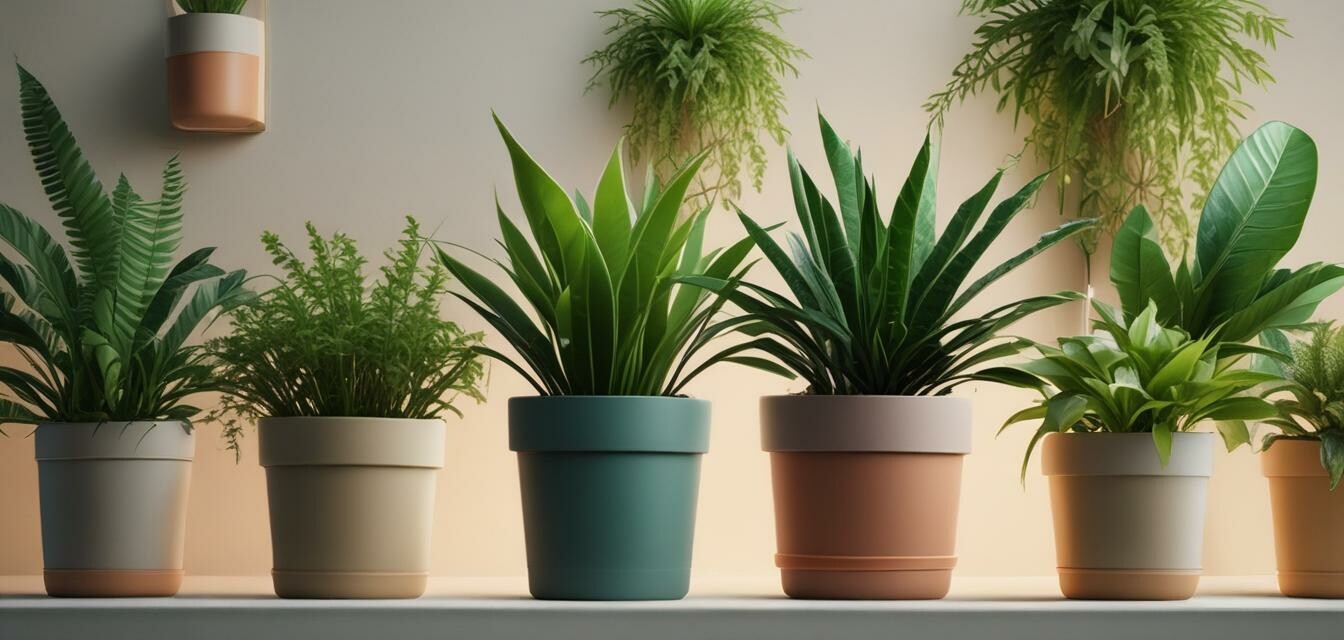
Sustainability in Houseplants: Trends to Watch in 2025
Key Takeaways
- The trend of sustainability in houseplants is rapidly growing in 2025.
- Eco-friendly products and responsible sourcing practices are gaining traction.
- Urban gardening and community initiatives are on the rise.
- The demand for low-maintenance houseplants is increasing among busy owners.
- Innovative growing techniques are enhancing plant care while minimizing waste.
As we step into 2025, the houseplant world is undergoing an exciting transformation with a strong focus on sustainability. This trend is not just about choosing beautiful greenery for our living spaces but also embracing practices that are eco-friendly and responsible. In this article, we'll explore the pivotal trends that are shaping sustainability in houseplants, including the rise of eco-conscious products, urban gardening movements, and innovative growing techniques.
1. Eco-Friendly Products
With increasing awareness around environmental issues, plant enthusiasts are seeking sustainable options. Eco-friendly products are on the rise, including biodegradable pots, organic fertilizers, and cruelty-free pest control solutions. These products not only benefit the plants but also contribute significantly to reducing the carbon footprint.
Popular Eco-Friendly Products
| Product Type | Description |
|---|---|
| Biodegradable Pots | Pots made from natural materials that decompose, enriching the soil. |
| Organic Fertilizers | Fertilizers produced from natural sources, safe for plants and pets. |
| Cruelty-Free Pest Control | Pest management products that do not harm animals or the environment. |
2. Responsible Sourcing
Houseplant collectors are becoming more informed about where their plants come from. Responsible sourcing means buying plants that are grown sustainably and ethically. Many retailers are now providing transparency about their supply chains and supporting local growers. This ensures that the plants you bring home have been cultivated responsibly.
To explore more about maintaining sustainably sourced plants, check out our article on Plant care tips.
3. Urban Gardening Movements
The urban gardening trend is flourishing as more people look for ways to bring greenery into their homes and communities. Community gardens are springing up, bringing together individuals who are passionate about houseplants and sustainability. These initiatives not only promote city greening but also foster social connections.
Benefits of Urban Gardening
- Enhances local biodiversity
- Improves air quality
- Encourages responsible consumption
- Connects community members
4. Low-Maintenance Houseplants
As life gets busier, the demand for low-maintenance houseplants continues to surge. These plants require minimal care, making them perfect for urban dwellers and busy professionals. Sustainable options in this category are being promoted actively, allowing anyone to incorporate greenery into their lives effortlessly.
For a deeper dive into low-maintenance houseplants, refer to our low-maintenance houseplants category.
5. Innovative Growing Techniques
Modern technology is playing a crucial role in sustainable plant care. Techniques such as hydroponics and aeroponics reduce water usage while maximizing plant growth. These methods are perfect for small spaces and can significantly lower waste, aligning with sustainable practices.
Types of Innovative Techniques
| Technique | Description |
|---|---|
| Hydroponics | Soil-less growth method using nutrient-rich water. |
| Aeroponics | Growing plants in mist, promoting rapid growth with minimal resources. |
Conclusion
Sustainability in the houseplant realm is not just a passing trend; it's a movement toward a greener future. As we embrace eco-friendly products, responsible sourcing, and innovative techniques, we cultivate a deeper connection with our plants and the environment. Stay tuned to our blog for more updates on the latest trends in houseplants, and join us in making conscious choices when it comes to caring for our green friends.
Tips for Adopting Sustainable Plant Practices
- Choose local retailers who support sustainable farming practices.
- Opt for organic fertilizers and pest control solutions.
- Participate in community gardening initiatives.
- Educate yourself about the plants you’re purchasing and their origins.
Pros
- Promotes environmental health and conservation.
- Supports local economies and communities.
- Encourages responsible plant care practices.
Cons
- Eco-friendly products may be more expensive.
- Limited availability in certain regions.

